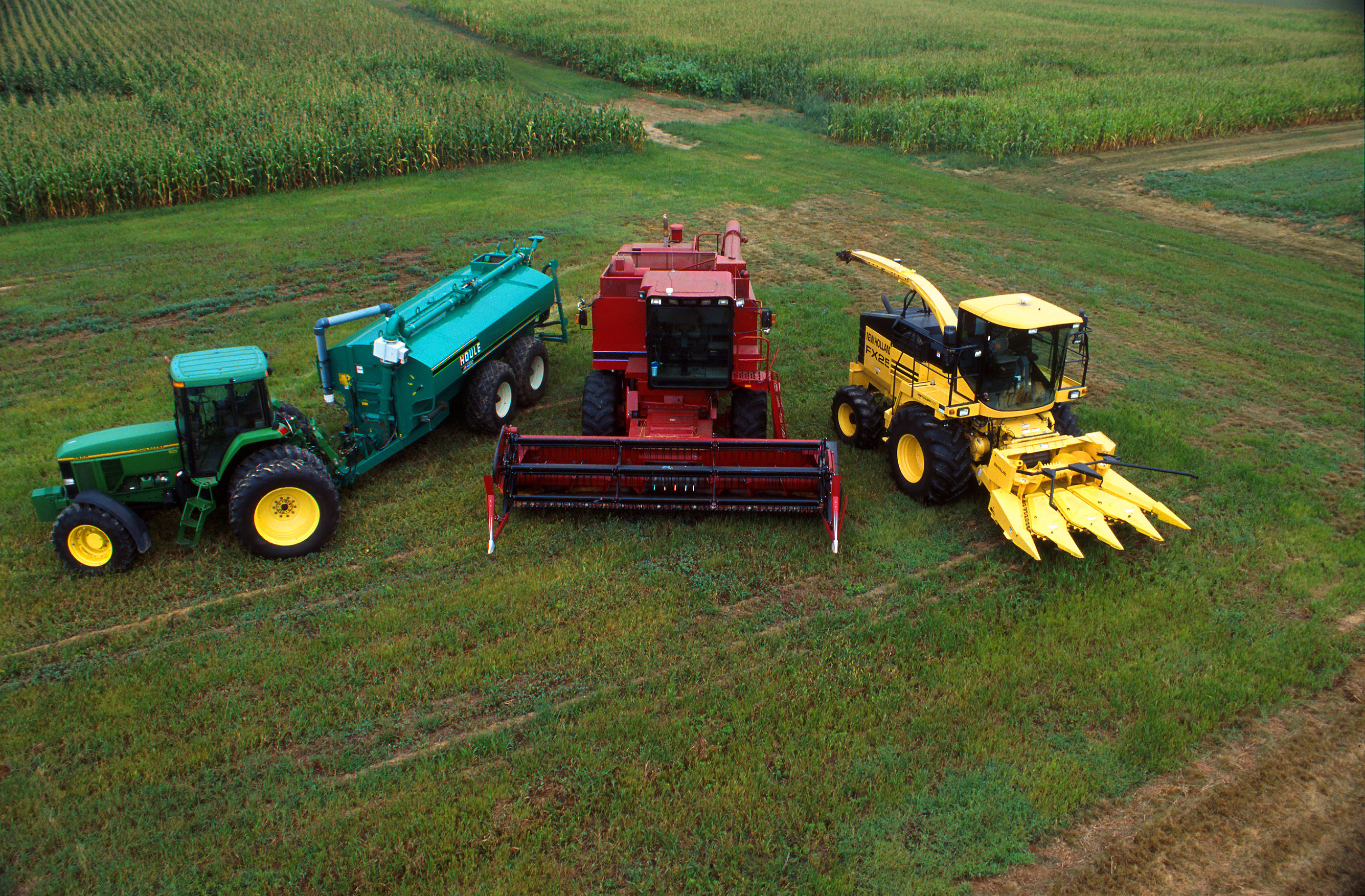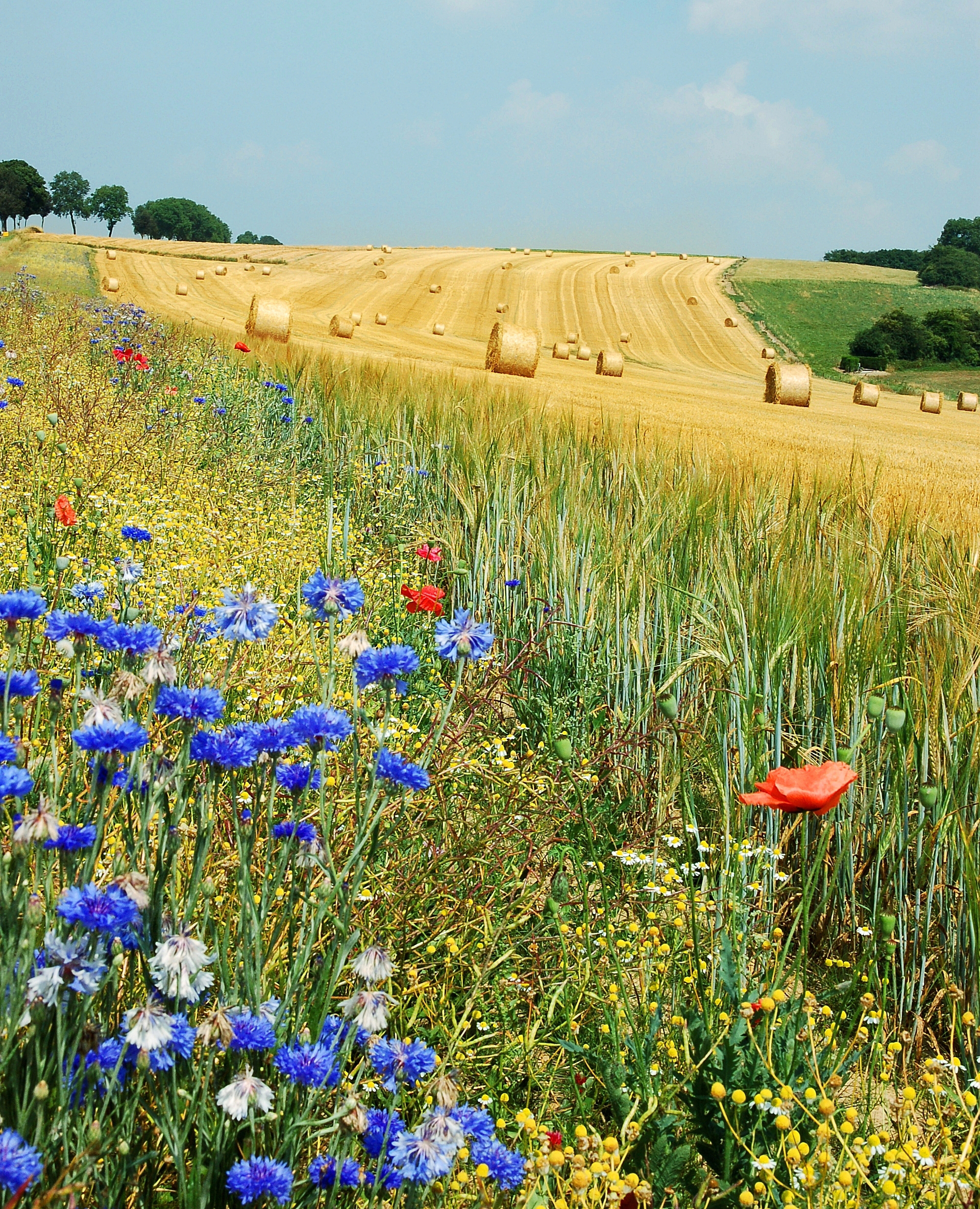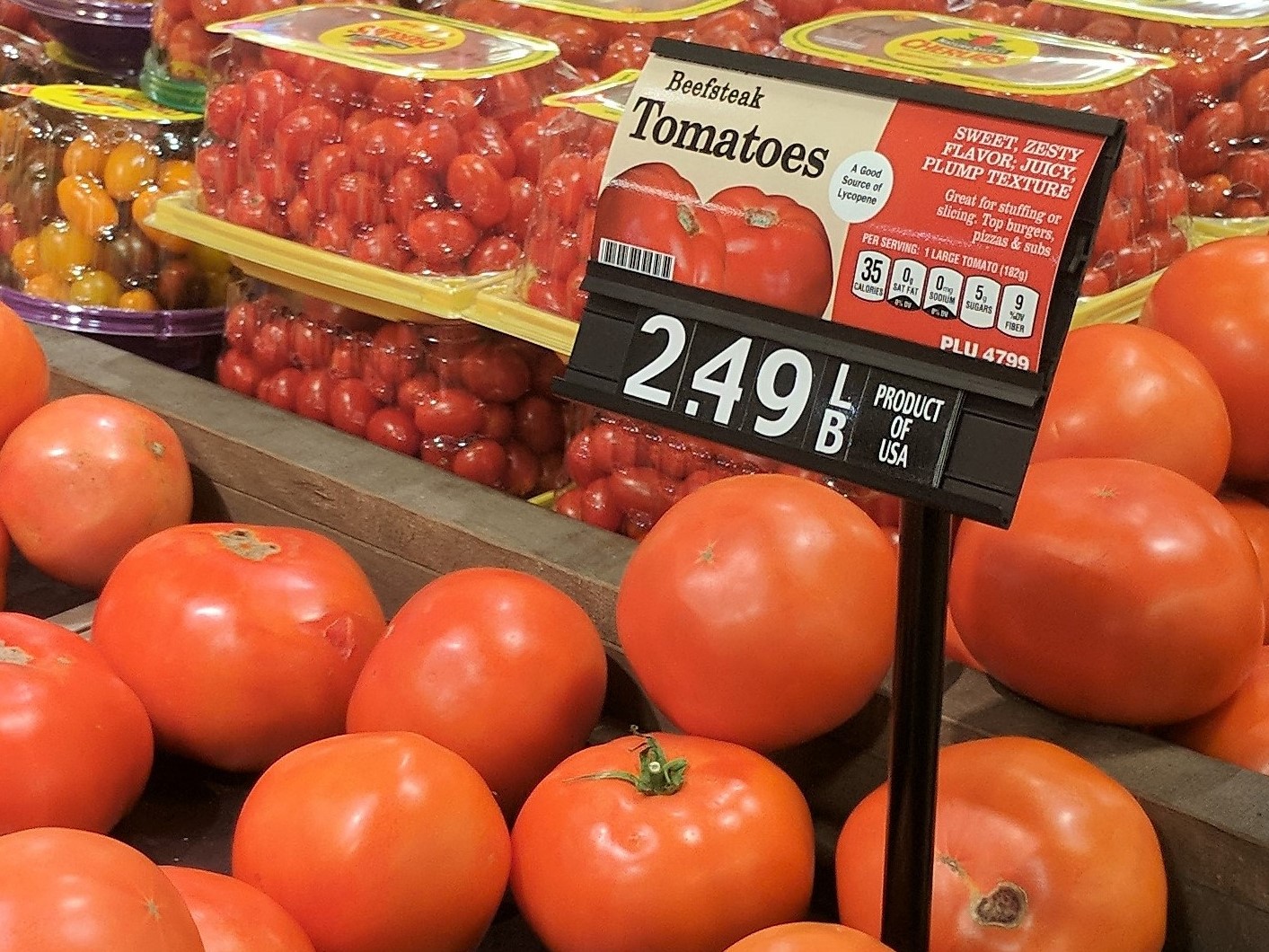|
Single Farm Payment
The Single Farm Payment is an agricultural subsidy paid to farmers in the EU. History Historically, the EU's Common Agricultural Policy (CAP) emphasised direct subsidies for agricultural produce. To reduce price distortion, the connection between payments and specific crops was removed; instead, a "Single Farm Payment", which subsidised farmers on a per-hectare basis, was introduced in June 2003; although farmers may now attempt to claim subsidies for more land than they actually have. This "decoupling" of subsidies means they are accepted in the "Blue box" category of subsidies in the WTO Agreement on Agriculture negotiated at the Uruguay Round, in line with international agreements to reduce market-distorting subsidies and price controls. Payments to farmers National governments within the EU make their own arrangements for implementation and for paying subsidies to farmers. When the UK was a part of the EU, this was done by the Rural Payments Agency, an executive agency of Def ... [...More Info...] [...Related Items...] OR: [Wikipedia] [Google] [Baidu] |
Agricultural Subsidy
An agricultural subsidy (also called an agricultural incentive) is a government incentive paid to agribusinesses, agricultural organizations and farms to supplement their income, manage the supply of agricultural commodities, and influence the cost and supply of such commodities. Examples of such commodities include: wheat, feed grains (grain used as fodder, such as maize or corn, sorghum, barley and oats), cotton, milk, rice, peanuts, sugar, tobacco, oilseeds such as soybeans and meat products such as beef, pork, and lamb and mutton. A 2021 study by the UN Food and Agriculture Organization found $540 Billion was given to farmers every year between 2013 and 2018 in global subsidies. The study found these subsidies are harmful in numerous ways. In wealthy countries, they damage health by promoting the overconsumption of meat. In under-developed countries they encourage overconsumption of low-nutrition staples. Subsidies also contribute to the climate crisis, by encouraging d ... [...More Info...] [...Related Items...] OR: [Wikipedia] [Google] [Baidu] |
Set-Aside Farmland - Geograph
Set-aside was an incentive scheme introduced by the European Economic Community (EEC) in 1988 (Regulation (EEC) 1272/88), to (i) help reduce the large and costly surpluses produced in Europe under the guaranteed price system of the Common Agricultural Policy (CAP); and (ii) to deliver some environmental benefits following considerable damage to agricultural ecosystems and wildlife as a result of the intensification of agriculture. It sought to achieve this by requiring that farmers leave a proportion of their land out of intensive production. Such land is said to be 'set-aside'. History Set-aside became compulsory in 1992 for large arable farmers as part of the MacSharry reform of the Common Agricultural Policy. It was originally set at 15% and reduced to 10% in 1996. Following the introduction of decoupled payments in 2005, farmers who had historically claimed set-aside were awarded a number of set-aside 'entitlements' equivalent to the area they had previously set-aside. In or ... [...More Info...] [...Related Items...] OR: [Wikipedia] [Google] [Baidu] |
Common Agricultural Policy
The Common Agricultural Policy (CAP) is the agricultural policy of the European Union. It implements a system of agricultural subsidies and other programmes. It was introduced in 1962 and has since then undergone several changes to reduce the EEC budget cost (from 73% in 1985 to 37% in 2017) and consider rural development in its aims. It has, however, been criticised on the grounds of its cost and its environmental and humanitarian effects. Overview The CAP is often explained as the result of a political compromise between France and Germany: German industry would have access to the French market; in exchange, Germany would help pay for France's farmers. The CAP has always been a difficult area of EU policy to reform; it is a problem that began in the 1960s and one that has continued to the present, albeit less severely. Changes to the CAP are proposed by the European Commission, after a public consultation, which then sends its proposals to the Council and to the European Pa ... [...More Info...] [...Related Items...] OR: [Wikipedia] [Google] [Baidu] |
The Boxes
''The'' () is a grammatical article in English, denoting persons or things that are already or about to be mentioned, under discussion, implied or otherwise presumed familiar to listeners, readers, or speakers. It is the definite article in English. ''The'' is the most frequently used word in the English language; studies and analyses of texts have found it to account for seven percent of all printed English-language words. It is derived from gendered articles in Old English which combined in Middle English and now has a single form used with nouns of any gender. The word can be used with both singular and plural nouns, and with a noun that starts with any letter. This is different from many other languages, which have different forms of the definite article for different genders or numbers. Pronunciation In most dialects, "the" is pronounced as (with the voiced dental fricative followed by a schwa) when followed by a consonant sound, and as (homophone of the archaic pron ... [...More Info...] [...Related Items...] OR: [Wikipedia] [Google] [Baidu] |
Agreement On Agriculture
The Agreement on Agriculture (AoA) is an international treaty of the World Trade Organization. It was negotiated during the Uruguay Round of the General Agreement on Tariffs and Trade, and entered into force with the establishment of the WTO on January 1, 1995. History Origins The idea of replacing agricultural price support with direct payments to farmers decoupled from production dates back to the late 1950s, when the twelfth session of the GATT Contracting Parties selected a Panel of Experts chaired by Gottfried Haberler to examine the effect of agricultural protectionism, fluctuating commodity prices and the failure of export earnings to keep pace with import demand in developing countries. The 1958 Haberler Report stressed the importance of minimising the effect of agriculture subsidies on competitiveness and recommended replacing price support with direct supplementary payments not linked with production, anticipating discussion on green box subsidies. Only more recently, t ... [...More Info...] [...Related Items...] OR: [Wikipedia] [Google] [Baidu] |
Uruguay Round
The Uruguay Round was the 8th round of multilateral trade negotiations (MTN) conducted within the framework of the General Agreement on Tariffs and Trade (GATT), spanning from 1986 to 1993 and embracing 123 countries as "contracting parties". The Round led to the creation of the World Trade Organization, with GATT remaining as an integral part of the WTO agreements. The broad mandate of the Round had been to extend GATT trade rules to areas previously exempted as too difficult to liberalize (agriculture, textiles) and increasingly important new areas previously not included (trade in services, intellectual property, investment policy trade distortions). The Round came into effect in 1995 with deadlines ending in 2000 (2004 in the case of developing country contracting parties) under the administrative direction of the newly created World Trade Organization (WTO). The Doha Development Round was the next trade round, beginning in 2001 and still unresolved after missing its official ... [...More Info...] [...Related Items...] OR: [Wikipedia] [Google] [Baidu] |
World Trade Organization
The World Trade Organization (WTO) is an intergovernmental organization that regulates and facilitates international trade. With effective cooperation in the United Nations System, governments use the organization to establish, revise, and enforce the rules that govern international trade. It officially commenced operations on 1 January 1995, pursuant to the 1994 Marrakesh Agreement, thus replacing the General Agreement on Tariffs and Trade (GATT) that had been established in 1948. The WTO is the world's largest international economic organization, with 164 member states representing over 98% of global trade and global GDP. The WTO facilitates trade in goods, services and intellectual property among participating countries by providing a framework for negotiating trade agreements, which usually aim to reduce or eliminate tariffs, quotas, and other restrictions; these agreements are signed by representatives of member governmentsUnderstanding the WTO' Handbook at WTO officia ... [...More Info...] [...Related Items...] OR: [Wikipedia] [Google] [Baidu] |
Rural Payments Agency
The Rural Payments Agency (RPA) is an executive agency of the UK Department for Environment, Food and Rural Affairs (Defra). Prior to Brexit, the RPA delivered the European Union (EU) Common Agricultural Policy (CAP) payments to farmers and traders in England, paying out over £2 billion in subsidies each year. The Agency managing more than 40 schemes, the largest of which the Basic Payment Scheme (BPS) paying more than £1.5 billion to around 105,000 claimants a year. Along with paying subsidies the agency has a number of other roles including managing the British Cattle Movement Service and the Rural Land Register which holds around 2.4 million registered land parcels digitally, and sends land maps to landowners in England. RPA works closely with Natural England and the Forestry Commission which are responsible for authorising payments under the Rural Development Programme for England for schemes including Environmental Stewardship and the English Woodland Grant ... [...More Info...] [...Related Items...] OR: [Wikipedia] [Google] [Baidu] |
Department For Environment, Food And Rural Affairs
The Department for Environment, Food and Rural Affairs (Defra) is a department of His Majesty's Government responsible for environmental protection, food production and standards, agriculture, fisheries and rural communities in the United Kingdom. Concordats set out agreed frameworks for co operation, between it and the Scottish Government, Welsh Government and Northern Ireland Executive, which have devolved responsibilities for these matters in their respective nations. Defra also leads for the United Kingdom on agricultural, fisheries and environmental matters in international negotiations on sustainable development and climate change, although a new Department of Energy and Climate Change was created on 3 October 2008 to take over the last responsibility; later transferred to the Department for Business, Energy and Industrial Strategy following Theresa May's appointment as Prime Minister in July 2016. Creation The department was formed in June 2001, under the leadersh ... [...More Info...] [...Related Items...] OR: [Wikipedia] [Google] [Baidu] |
European Central Bank
The European Central Bank (ECB) is the prime component of the monetary Eurosystem and the European System of Central Banks (ESCB) as well as one of seven institutions of the European Union. It is one of the world's Big Four (banking)#International use, most important central banks. The Governing Council of the European Central Bank, ECB Governing Council makes the projects for the monetary policy for the European Union with suggestions and recommendations and to the Eurozone with more direct applications of such policies, it also administers the foreign exchange reserves of EU member states in the Eurozone, engages in foreign exchange operations, and defines the intermediate monetary aims and objectives, and also the common interest rates for the EU. The Executive Board of the European Central Bank, ECB Executive Board makes policies and decisions of the Governing Council, and may give direction to the national central banks, especially when doing so for the Eurozone central ... [...More Info...] [...Related Items...] OR: [Wikipedia] [Google] [Baidu] |
Food Prices
Food prices refer to the average price level for food across countries, regions and on a global scale. Food prices have an impact on producers and consumers of food. Price levels depend on the food production process, including food marketing and food distribution. Fluctuation in food prices is determined by a number of compounding factors. Geopolitical events, global demand, exchange rates, government policy, diseases and crop yield, energy costs, availability of natural resources for agriculture, food speculation, changes in the use of soil and weather events have a direct impact on the increase or decrease of food prices. The consequences of food price fluctuation are multiple. Increases in food prices, or agflation, endangers food security, particularly for developing countries, and can cause social unrest. Increases in food prices is related to disparities in diet quality and health, particularly among vulnerable populations, such as women and children. Food prices will o ... [...More Info...] [...Related Items...] OR: [Wikipedia] [Google] [Baidu] |
Single Payment Scheme
On 26 June 2003, EU farm ministers adopted a fundamental reform of the Common Agricultural Policy (CAP) and introduced a new Single Payment Scheme (SPS or Single Farm Payment) for direct subsidy payments to landowners. The system of subsidy applies throughout the European Union according to rules agreed between the member states. However, exact details of implementation and grants vary from country to country within the outline rules. Transitional rules also apply for new member states which joined the EU in 2004 and more recently. States have a choice of whether to introduce the new scheme at once, or to phase it in over a period from 2005 to 2013. The UK Government decided to be one of the first countries in Europe to introduce the Single Payment Scheme and decided to start to phase it in from 2005. Introduction in the UK was strategically coordinated via Defra, with devolved responsibility to England, Wales, Scotland and Northern Ireland to independently implement the scheme. T ... [...More Info...] [...Related Items...] OR: [Wikipedia] [Google] [Baidu] |



.png)



